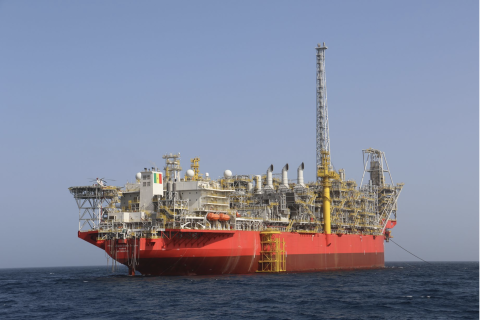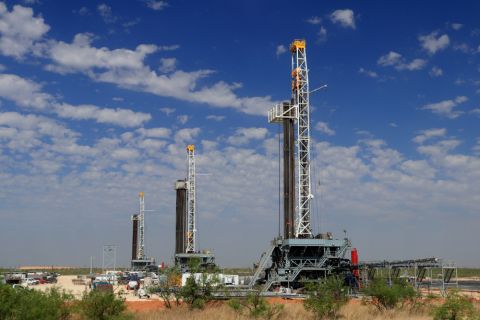Spending time on drilling rigs before he was old enough to drive, Chris Booth knew that he was meant to be a part of the energy industry. He has a bachelor of science degree in business management from LeTourneau University and a doctorate of jurisprudence and masters of business administration from the University of Houston.
After passing the bar in 1999, Booth joined the law firm Mehaffy Weber PC in Beaumont, Texas. Later, he moved to Martin Midstream Partners LP, was promoted to vice president and general counsel in February of 2006, and has been secretary for the company since November 2006.

“The energy policy is shifting toward trying to find more domestic supplies and to make better use of such production. I see a lot of opportunities in the future as those needs develop.” – Chris Booth, vice president, secretary and general counsel, Martin Midstream Partners LP.
MIDSTREAM: How did your roots lead you to this business?
BOOTH: I grew up in a town called Liberty, Texas, which is between Beaumont and Houston, and it has a long history of oil production. My stepfather was a tool-pusher on a drilling rig for many years. Before the days of significant liability, I remember staying in a trailer by the rig site for two or three days at a time while he was drilling a well. As a result, I was exposed to the industry, getting to see how wells were drilled. I witnessed both the good times in the late ‘70s and the bad times in the early ‘80s and saw how both could affect a person’s family.
MIDSTREAM: What was that like for you?
BOOTH: It made me cautious to get into an energy practice. However, because I’ve seen such a sustained, continuous growth in the energy industry, I’m not personally as worried about the industry’s cyclical nature, as such relates to the provision of legal services. Obviously, from a business perspective that can always be a concern, no matter what industry you choose. Many lawyers that practice in the energy industry are on average older—they are all guys who have seen the ups and downs—so they know what to expect.
MIDSTREAM: How has your own career changed?
BOOTH: After private practice, I decided that I was going to treat the company’s divisions as if they were my clients in private practice. I give them a high level of customer service and try not to be a barrier to getting deals done. I help our business people find solutions to problems, rather than just saying that we cannot do something. Many times, on the other side of transactions, I hear comments like, “our lawyers won’t let us do that,” or “our lawyers won’t let us approve that.” I try to find a way to get it done. Until I came aboard in October of 2005, Martin Midstream Partners LP did not have a legal department. All of its legal services were managed by outside firms. Now that the department has been in place for more than five years, we have created structure that helps provide efficient legal services to both Martin Midstream Partners LP and Martin Resource Management Corp. The department manages both businesses from a legal perspective. The work is never the same. Some days I’m dealing with small fires to put out and sometimes I’m helping develop broader policy-type programs for the companies.
MIDSTREAM: What are Martin Midstream’s new projects?
BOOTH: One of the major projects we are working on is the development of a marine crude terminal to handle crude coming out of the Eagle Ford shale in South Texas. We are trying to find a solution to get the crude to the water and into barges so it can be shipped to the appropriate markets. In fact, one of the biggest challenges for the midstream industry is trying to keep up with the producers that are creating new opportunities. The Eagle Ford shale is a prime example. The E&P guys can get in front of the midstream operators in developing reserves and producing product before the infrastructure can be developed to handle the output, so that can be a challenge.
MIDSTREAM: Do you see more opportunities for natural gas in the future?
BOOTH: Absolutely. New technology, especially in new areas that haven’t seen that sort of growth before, leads to great opportunity. I think, on a broader scope, that our national energy policy is shifting toward trying to find opportunities to use energy produced in the U.S. and utilize more natural gas. One of my colleagues told me that recently he was in New York City and saw multiple taxi cabs with CNG stickers on them, which means they were running off compressed natural gas. That’s encouraging. The energy policy is shifting toward trying to find more domestic supplies and to make better use of such production. I see a lot of opportunities in the future as those needs develop.
Recommended Reading
NAPE: Chevron’s Chris Powers Talks Traditional Oil, Gas Role in CCUS
2024-02-12 - Policy, innovation and partnership are among the areas needed to help grow the emerging CCUS sector, a Chevron executive said.
Sangomar FPSO Arrives Offshore Senegal
2024-02-13 - Woodside’s Sangomar Field on track to start production in mid-2024.
CNOOC Makes 100 MMton Oilfield Discovery in Bohai Sea
2024-03-18 - CNOOC said the Qinhuangdao 27-3 oilfield has been tested to produce approximately 742 bbl/d of oil from a single well.
TPH: Lower 48 to Shed Rigs Through 3Q Before Gas Plays Rebound
2024-03-13 - TPH&Co. analysis shows the Permian Basin will lose rigs near term, but as activity in gassy plays ticks up later this year, the Permian may be headed towards muted activity into 2025.
Proven Volumes at Aramco’s Jafurah Field Jump on New Booking Approach
2024-02-27 - Aramco’s addition of 15 Tcf of gas and 2 Bbbl of condensate brings Jafurah’s proven reserves up to 229 Tcf of gas and 75 Bbbl of condensate.





